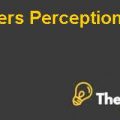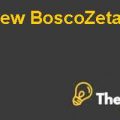
Survey Design and Development Paper Case Solution
Introduction
In attempts to increase economic efficiency, traditional leadership theory has been focused on providing direction and support, leading incremental change, setting goals, modifying management styles, reinforcing proper behaviors, putting employees on a path to a new goal, and providing the right climate for success (Bass, 1985).
The conventional rule-of-thumb in industry, as supported by industry-leading authors of leadership such as Stewart D. Friedman, Be a Better Leader, Have a Richer Life; Peter F. Drucker, Managing Oneself, and Cynthia A. Montgomery, Putting Leadership back into Strategy, among others, depict the impact of a business owner or leader’s kingdom-minded perspective on business success (Martin, 2007).All of these writings are ground in quantitative research and build structure around theory and supporting data. Spiritual leadership, often referred to as servant leadership, offers an alternative base of theory.
Statement of Problem
The public, at large, views corporate America as greedy, dishonest, amoral, corrupt, and lacking in good character. By last year, the nation had fallen to 24th place (Lyell, 2012).
Can kingdom-minded leaders and businesses raise their interrelated bottom line results by practicing spiritual leadership, and is there an empirical relationship among the qualities of spiritual leadership, spiritual health, and organizational productivity and commitment?
The purpose of this study will be to determine how the characteristics of Spiritual Leadership Theory (SLT) are practiced by a small group of kingdom-minded leaders in a southwestern metropolitan community. The objective of the research is to gather suitable evidence for determining the empirical relationship between the characteristics of Spiritual Leadership Theory (SLT) and organizational commitment and productivity.
Literature Review
In the recent decades leading up to and into the 21st Century, leaders have been called more and more into question because of sometimes-scandalous behavior. This behavior has revealed carelessness that has resulted in environmental damage, unethical decisions, and sometimes illegal handling of finances that has led to economic ruin, and social and political scandals. These issues have rocked the trust of the owners of these organizations. Without a faith-focus and external emphasis toward the community, leaders may outlive their usefulness both within the companies they serve and in the larger society.
As companies have responded to public perception, there has been a failure to consider a faith-focus and an emphasis on kingdom building for the betterment of the community. Companies continue to focus on the financial bottom line, the social bottom line, and even the bottom line impact to our planet; however, few are focusing on the spiritual bottom line.Those that include the spiritual bottom line as part of their interrelated bottom line results are finding that it has a positive impact (Cardone, 2009).
What is corporate leadership? According to Goldberg (2013), there are many definitions and ongoing debates on the topic of corporate leadership,and what it entails.....................
This is just a sample partial case solution. Please place the order on the website to order your own originally done case solution











